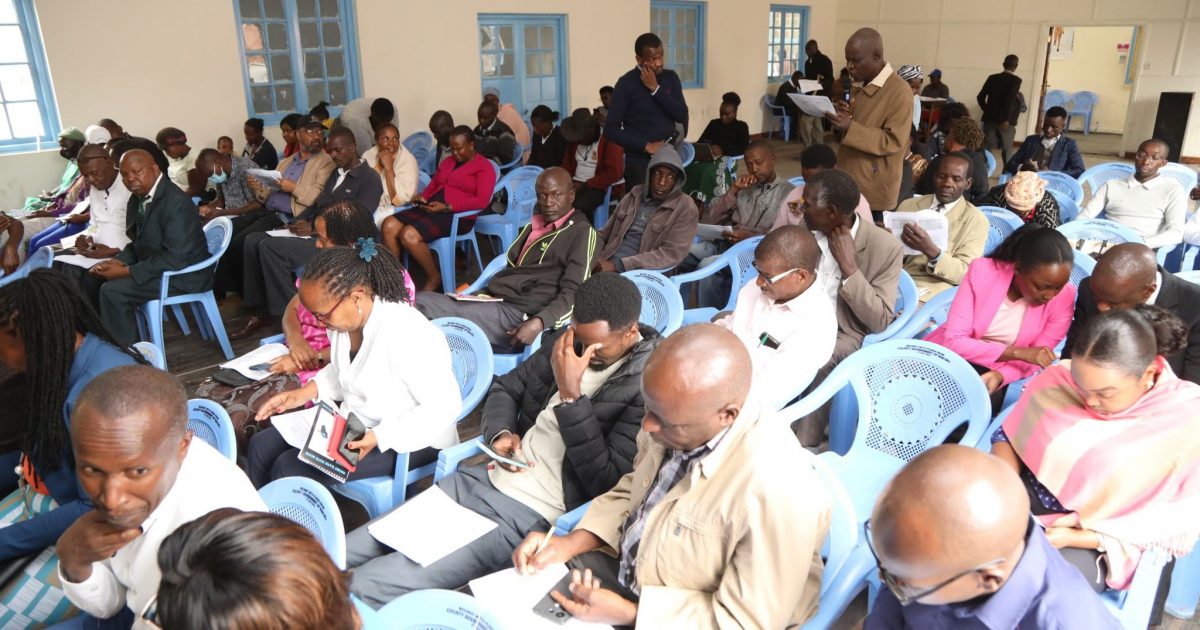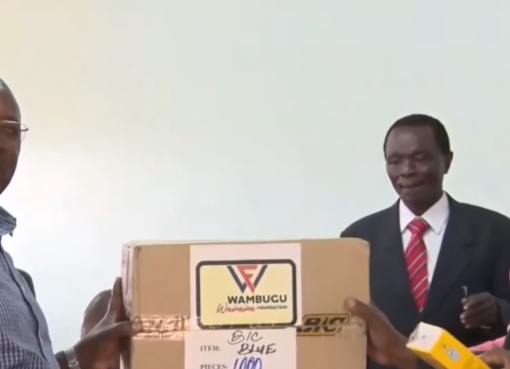The County Government of Nakuru is leveraging on a new Climate Change Action Plan to combat the adverse effects of climate change, enhance food security, and create jobs and investment opportunities.
County Executive Committee Member (CECM) for Water, Environment, Energy, Climate Change, and Natural Resources, Dr Nelson Maara, explained that the County was banking on the ambitious 2024/25 Action Plan, tailored for local communities with 55 ward climate change committees acting as the lead ambassadors, and would draw from traditional knowledge of climate change and weather patterns.
He said the devolved unit was keen to capitalize on opportunities presented by climate change, prioritizing agriculture and renewable energy investments for job creation and wealth generation.
The CECM further said his department was focusing on managing solid waste, providing safe drinking water to all residents, and addressing climate change through locally-led initiatives.
Dr. Maara made the remarks during public hearings on the County Climate Actions 2024/25 and the sectoral proposals for the Nakuru County Fiscal Strategy Paper and the Medium-Term Expenditure Framework (MTEF) Budget 2025/2026 – 2027/2028.
He indicated that the Financing of the Locally-Led Climate Action (FLLoCA) program was a critical funding mechanism supporting the Climate Change Unit in enhancing community resilience and sustainability and commended development partners, including the National Government and the World Bank, whom he said were keen on supporting the County climate change agenda.
“We are committed to environmental conservation through tree planting campaigns to curb soil erosion and enhance forest cover to ensure a cleaner, greener, and more sustainable County,” said the CECM.
During the meeting residents raised concerns over water shortages in some parts of the County and challenges in solid waste management, particularly the poor state of the Giotto dumpsite.
Dr Maara conceded that the concerns reflected the pressing need for sustainable and innovative solutions to improve service delivery across the county and outlined updates on ongoing water projects funded by FLLoCA and the County Government, efforts to replace leaking and broken pipes, and the procurement of over 20,000 acres of land in Naivasha to address waste disposal challenges.
Dr Maara also said that Nakuru was implementing green energy programmes targeting learning institutions, homesteads, and vulnerable groups adding that the County government was encouraging the culture of environmental conservation and embracing renewable energy right from schools, where it’s a win-win situation.
He cited cases where some schools spread across the County were being encouraged to start livestock keeping, grow crops, and serve as livestock farming resource centres for small-holder farmers whilst using biogas for fuel and lighting in the schools.
Dr Maara expressed satisfaction that the push to have community interventions at the forefront of climate resilience was gaining traction in the county adding that the incorporation of local adaptation priorities, particularly those of marginalized groups, was working towards improving food production and water conservation.
Acting Director for Environment and Climate Change, Ms Grace Karanja, pointed out that despite all efforts, the country is still grappling with climate change impacts, adding that in the last one and a half years, Kenya had experienced abnormally heavy rains within two seasons that negatively impacted on lives.
Ms Karanja said that programmes such as FLLoCA were key in addressing the adaptation and resilience measures at rural and urban levels.
She observed that the county government was playing a critical role in fighting climate change by implementing localized climate action plans, including managing land use, promoting sustainable agriculture, investing in climate-resilient infrastructure, raising awareness within communities, and advocating for policies that support environmental protection.
In line with the County Climate Action Plans (CCAP), and the National Climate Change Action Plan (NCCAP) III-2023-2027, counties are expected to integrate climate resilience into infrastructure, development, urban planning, disaster preparedness among others to reduce the vulnerability of the inhabitants to climate-related risks.
To effectively respond to the climate crisis, counties are required to prioritize locally-led climate actions in their budgets and policies through the establishment of a specific legal framework and mechanisms to enable them to attract support and financing from donors, national government, development partners, especially the World Bank to enhance accountability.
This is why the Government, with the support of the National Treasury in collaboration with the World Bank and other donors, established the Financing Locally-Led Climate Action (FLLoCA) programme to support and build the county’s ability to manage and deliver locally-led climate resilience actions.
The FLLoCA project is aimed at building the capacity of counties to plan, implement, budget, and report on their respective local actions in line with the National Climate Change Action Plan (NCCAP) 2023-2027 and the Constitution.
FLLoCA is a five-year initiative implemented by the National Treasury through the Programme Implementation Unit (NTPIU) and the County Climate Change Units (CCCUs).
By Esther Mwangi





